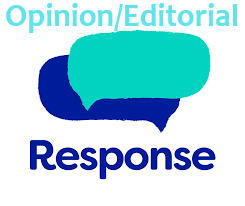EDITOR’S NOTE: This op/ed is a response to Rockaway Beach Mayor Charles McNeilly’s report on the recent lawsuit brought by several Rockaway Beach citizens about how city council positions are chosen in the city. Here is the link to Mayor McNeilly’s report. We have put an (*) asterisk by several phrases or words used by Mr. McMahan to incidate that this is misleading characterizations – his opinion- and/or mis-information. Rockaway Beach’s election process is not “illegal” and the process to approve the election process was not done “quietly”. The city held the required readings and public hearings about the ordinance and the council voted unanimously to approve it. No one’s voting rights are being violated and Judge Hill ruled in favor of the City, that the process is legal and binding. The City of Rockaway Beach encourages citizen involvement. Stated Mayor McNeilly, “I encourage Rockaway Beach citizens to vote in the election to select the best candidates to lead our community forward in a collaborative and transparent manner.”
By Justin McMahan
As a resident of Rockaway Beach, I believe in the strength of our community and the unity found in transparency. Recently, I found myself thrust into the heart of a political storm that has shaken our town. I, along with a large group of concerned citizens, sued the city over what we believed to be an illegal* election process. This is my story.
It all began as an effort to restore the voting rights that had long been part of Rockaway Beach’s tradition. Over time, however, this effort revealed a far more complex issue: the city had quietly* codified an election process that effectively stripped citizens of their rightful involvement. Our case may not have succeeded in court, but it brought crucial truths to light and underscored an ongoing injustice.
On August 14th, during a city council meeting, I, along with Daniel Howlett and Kristine Hayes, was publicly denigrated by the mayor and other council members for our lawsuit. They made three accusations that were not only false but deeply misleading. First, they claimed our lawsuit was frivolous and a waste of time. Second, they accused us of trying to manipulate the upcoming elections, and lastly, they suggested we filed the suit to deny citizens a voice in the process. The irony of that last claim will become clearer as this story unfolds.
On August 28th, we walked into the courtroom, determined yet aware of the difficult battle ahead. The city’s defense immediately sought to have the case dismissed, but Judge Hill denied this attempt. Twice more during the day, the defense tried to shut down our case, and twice more they failed. Though Judge Hill ultimately ruled against us, he acknowledged that our arguments were reasonable and clear—contradicting the city’s claim that our lawsuit lacked merit.
Despite the court ruling, the accusations at the city council meeting continued to circulate. The claim that we sought to manipulate the elections was particularly laughable. Daniel Howlett had no intention of running for office, Kristine Hayes was already on the council, and I was the only one who could have potentially benefited. But even then, the chances of the lawsuit altering my election prospects were slim.
The most damaging accusation, however, was that we were taking away citizens’ rights by filing the lawsuit. This couldn’t be further from the truth. The real story, as it unraveled during the trial, was that the city’s leadership had already done this through a quiet*, behind-the-scenes* move. It all began with Ordinance 2024-02, which was introduced in a January City Council Workshop and passed at the February council meeting. The ordinance ostensibly focused on how candidates qualify for the ballot, requiring 11 signatures to run for office. At the time, both the mayor and city manager assured us it had nothing to do with altering the election process.
However, during the trial, it became clear that this ordinance was, in fact, the key to codifying Rockaway Beach’s entire election process—including the illegal* element involving seat numbers. This essentially shut down any chance of restoring the election process to its rightful state, preventing citizen involvement in deciding how our elections should be run. Even council members, including McGinnis and Hayes, testified that they didn’t fully understand the ordinance’s true purpose when they voted on it. The mayor, on the other hand, admitted on the stand that the ordinance was always intended to cement the election process into law contrary to his comments in the workshop.
This revelation stunned those of us in the courtroom. For months, we had been accused of trying to take power away from the citizens, but the truth was that the city leadership had already done so, using this ordinance as a shield. The mayor, who had previously argued that we were undermining democracy, had been the one to orchestrate this move behind closed doors.
In the end, the city’s actions not only solidified an illegal* election process but also created a deeper rift within our town. Our fight may not have achieved the outcome we hoped for, but it has revealed the urgent need for greater transparency and accountability in how our town is governed. I remain committed to standing up for the rights of the citizens of Rockaway Beach, and I encourage others to do the same. Together, we can work toward a future where our voices are heard, and our elections reflect the will of the people, not the agendas of a few.


